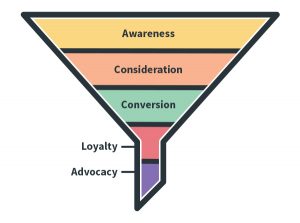IKTEM Conference Announced for 2019
The IKTEM conference, an international development event for ICT, electronics and mechatronics development engineers, has been announced for 2019. Organized by AX elektronika, publisher of both Svet elektronike magazine and Svet mehatronike magazine, the event will take place 30th to 31st May 2019 at the beautiful ski resort of Rogla, Hotel Planja.
The two-day event offers several exciting sessions and workshops, with the first day of presentations concluding with the announcement of the winners for the Summer Sledge competition, who will receive a free weekend stay at the Rogla Hotel for two people.
Hands-on-workshops will include Quectel development boards and free NB IoT SIM cards that will be live and valid for six months after the conference. This will enable participants to test their NB IoT designs at their offices and will be the first time in Slovenia that NB IoT gateways will be live and open to many users across the country.
The conference will also cover hot topics such as:
- Introduction to BLE-Bluetooth Low Energy line-up
- Test solutions for the Internet of Things
- 3D printing
- Automated testing of electronics devices with a help of modular platform NI PXI
For more information regarding IKTEM and how you can register please click here.
How to use Google Analytics to track ALL of your Marketing Activities
Google Analytics is an important tool to use in digital marketing. It allows businesses to measure results of campaigns, compare data and a whole lot more. Google Analytics shows data from all channels that are pointing traffic to a website, such as: PPC, social media, direct traffic and SEO.
The ability to monitor and analyse platforms pinpoints what is working well and what isn’t. Having data in one place makes life simpler and allows you to easily look at metrics such as click through rates and monitor your ROI. Google Analytics lets you evaluate the following:
Engagement
Analytics is a great way to show customer engagements, it will allow you to see how users are interacting with your site and content. Bounce rates, session duration and pages are also great features to investigate, for example, the amount of time spent on a page or percentage of visitors navigating away from the site. This gives you an indication of performance and areas to improve on.
Conversion
As well as knowing how many visitors your site has received, it is important to know how many of these visitors are converting. Google analytics allows you to set up goals to track when a user carries out an action on the site. No matter how many users each channel is driving to your website, it is important to know that this traffic is converting.
Devices
With the importance of mobile first ranking, sites need to be more mobile friendly and Google Analytics allows you to learn more about who makes up your website traffic and where the traffic is coming from. The platform will also allow you to know if something needs changing or not depending on the number of visitors and or conversions.
At Napier we have a Google Analytics Link Generator that will ensure you create a link that’s in the right format to transfer data across correctly. Use the tool to enter the details of your campaign and receive your Google Analytics coded link.
Try out our generator today and let us know how it worked for you!
Digital Marketing Summit Southampton 2018
Having joined Napier in September 2018 as a marketing specialist, I thought it would be a good idea to attend this event to help expand my knowledge and interest in the world of digital. The summit consisted of two days, the first day being conferences and the second workshops.
I attended many conferences and workshops which covered a variety of topics such as search engine optimisation (SEO), conversion rate marketing and page speed politics, although in this blog I will be covering topics that stood out for me and ones that I thought really make a significant impact.
Being able to listen and interact with many speakers was great. We got to hear about their background and wealth of knowledge/experience in the marketing industry. Their speeches, workshops and slides were so compelling and engaging and you could really see that the audience was captivated.
The following tips and information on SEO, paid media strategies and mobile index is what I will share with you throughout this blog.
SEO
As a marketing specialist, a lot of my work involves digital and I thought it was important to attend the SEO conference.
Kaspar Szymanski, SEO expert and former senior Google employee led the presentation with the topic of exploiting SEO honeymoon period – how to exploit it and make your brand new site rank well continuously.
He presented a few steps that we should consider in the honeymoon period for long lasting SEO performance for any new site.
- Site performance is an imperative factor especially when it comes to speed as it an SEO factor. Several factors will determine how quick a site will load. Making sure this a top priority will help with SEO
- Link building is about how users and google find new content and therefore link building should be looked at from the first day you launch a new site. The main focus is to drive conversions and brand recognition to boost positive user signals. The honeymoon period is the best time for building links to maintain traffic to the site and tell Google that a new site is the ‘new place to go’
- User signals – Google will love websites that are popular with users and they will have expectations as they look at the snippets – they will either choose or reject results. Therefore every snippet needs to outline what the landing page has to offer. Ensuring your unique selling proposition
A check list:
- Start link building for conversions from the first day
- Make your site faster than your competitors
- Manage user expectations with snippets and landing pages
The Ever-Changing Landscape of paid media
In this presentation, the speaker walked us through some of the latest features and updates across the main paid media platforms. It was full of inspirations and ideas and her suggestions were applicable for the whole marketing funnel.
In the Awareness stage, at the top of the funnel, she suggested getting more involved in social media such as Instagram stories, Facebook ads, Pinterest promoted pins and Apple Search ads with demographics targeting.
Consideration: local catalogue ads on display, Facebook messenger ads for brand engagement and one that will probably become popular is Facebook augmented ads.
Preference: Google local search map ads, Affiliate location extensions on YouTube Ads and Shopping price benchmarks.
Purchase: Shoppable ads on Instagram, Integration with Google Optimize & Google Adwords and LinkedIn Carousel Ads.
Loyalty: Facebook custom audiences for offline conversions and Facebook messenger ads to communicate post sales.
It was really compelling to hear different strategies that can deployed for all types of industries as many businesses pay too much attention to the bottom of the funnel. One important key element from this is making sure that all traffic you’ve got coming to your site is being used properly and to convert it along the way for any paid media campaign.
The Mobile First Index, what, why and more importantly when
Jon Myers, an experienced leader within the digital marketplace with over 19 years experience talks to us about the shift to the mobile first index by Google. This session gave me a great deal of SEO information and a roadmap of what to do!
Mobile search is the new priority for Google and with 60% of searches via mobile it is vital we keep on top of this. After all, users who have a bad mobile experience are 60% less likely to revisit your page.
The following will be important facts to take away with you:
- Google will not have a separate mobile index, it is the same single index
- Have a responsive or dynamic site
- Desktop pages will be phased out where is a mobile alternative
- Structured data will play a vital part in the mobile-first world
The impact on website performance:
- Keywords ranking will be affected if your mobile content is reduced and doesn’t contain terms the page was previously ranking for on desktop
- To maintain rankings; content, images, metadata and alt attributes need to be consistent across desktop and mobile
- The above needs to be crawlable
We Have Created Napier's Very Own SEO Tool! - Check it out here
What French journalists expect from agencies
Last summer, Jade Artaud joined Napier for a two-week placement for experience at a marketing and PR agency.
Jade interviewed four people from different French magazine organizations on the topic of what journalist expect from agencies.
Jade asked them several questions, but we have selected the best questions and answers from two interviews which we think are the most relevant.
Alain Dieul, editor of Electronique Composants & Instrumentation magazine
What do you expect from agencies and clients? In which way, can they be helpful to you?
I expect to receive press releases, in DOC format, and it is imperative they contain images in JPEG.
How important is it to have content in French? Do you ever use content sent to you in English?
I don’t read press releases written in English. The process takes a lot of time, that I don’t have. Also, it is already complicated to read all the French press releases I receive.
How will social media change journalism and publications? How important is social media to your job today?
With two types of magazines to take care about, I don’t have time to deal with social media. Also, regarding the content of my journals, social media is not the right platform to target readers.
Didier Girault, journalist for ElectroniqueS magazine
Do companies need an office in France before you will cover them?
No, if the information provided is likely to be of interest to French readers. Obviously, news regarding the supply of a product in Germany, for instance, will not be relevant to our readers.
What has been the biggest change to business to business journalism in the past 3 years?
I think the main change is due to the introduction of Internet and mobile telephony. Since then, social media appeared, and every company created its own website, etc.
On the one hand, journalists spend more and more time selecting relevant news among several data still high, received through emails, newsletters and as a result, they have less time to look for information during investigations. On the other hand, using Internet allow journalists to rapidly find information they didn’t have access to before, leading to original cross referencing.
Today, there is an influx of information, which constitutes a general problem (affecting both journalists and readers). The fact of “following” news constantly, tend to blunt critical thinking and can lead to a return of fatality.
What do you think will be the biggest change in the next 3 years?
I think there will be less and less appeal towards the research of raw data, and at the same time, a strong demand for structured articles (files, summaries, reports...) that will be used for the training of engineers and technicians. In the end, this is the training that will become important.
François Gauthier, managing editor of L’Embarqué
What do you expect from agencies and clients? In which way, can they be helpful to you?
I expect classic things such as press releases and contacts. Agencies are useful to network with people in charge of businesses.
What has been the biggest change to business to business journalism in the past 3 years?
The biggest change has been the rise of digital publishing. It is becoming more and more popular.
How important do you think blogs will become? According to you, could they replace publications?
I don’t think blogs will replace publications.
What French journalists want from agencies (based on Internet research)
Following on from this Jade did some research on what French journalist want from agencies.
- Relevant information: PR professionals should know what journalists are working on, what they are interested about and what the latest topics they dealt with are.
- Quality rather than quantity: it is better for journalists to receive a few press releases related to their area of expertise rather than receiving a press release each time an agency writes one. If an agency sends too many irrelevant press releases, journalists will no longer take the time to read any of the content and further emails from the agency will be automatically deleted.
- To gain time: journalists are asked to be highly productive, which is a source of stress. PR agencies need to reduce journalists’ workload as much as possible. Regarding press releases, for instance, it means sending two versions: one written in English and one in French to French journalists. Not only does it speed up journalists’ work but it also increases the chances of a rapid publication for the press release.
- To make contacts: journalists expect that PR agencies will allow them to meet key figures such as the chief executive officer of a company. They want the appointment to be well-organised and schedule rapidly.
French journalists and social media
According to a study conducted by CISION, most French journalist view social media as a useful tool for their job. Among the 290 French journalists who participated to this study, 91% use social media in their job. The most popular ones are Facebook and Twitter. Facebook comes first, as a way for journalists to publish and promote their articles. Then, they use Twitter to be aware of the latest news and buzz. Social media also allow journalists to evaluate the impact of their articles thanks to comments, likes and shares. In fact, social media can even become an indicator of what works and what doesn’t, leading 59% of French journalists to adapt their content accordingly.





